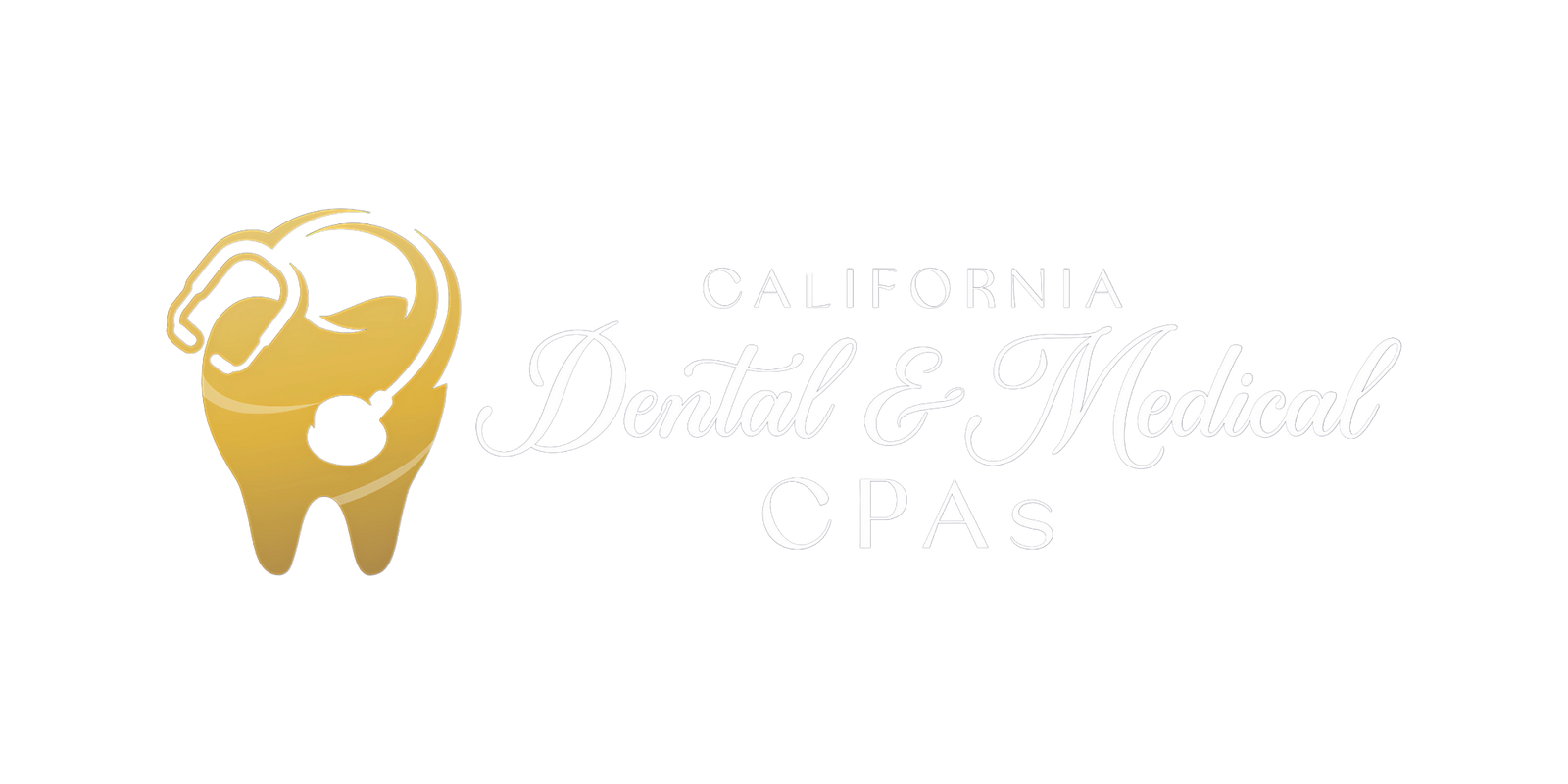Medical professionals face unique financial challenges that can be overwhelming. With the complexity of healthcare regulations, tax laws, and the demands of running a practice, it’s easy to see why many doctors and dentists struggle with financial management. This is where a CPA for medical professionals comes in. These specialized accountants can provide tailored advice and services that help healthcare providers focus on what they do best—caring for patients. Let’s explore why having a CPA is essential for medical professionals and how it can lead to significant financial benefits.
Key Takeaways
- A CPA helps with tax planning and ensures compliance with IRS regulations specific to healthcare.
- Specialized CPAs can identify unique deductions that maximize savings for medical practices.
- They help manage cash flow and expenses, which is crucial for practice sustainability.
- Choosing a CPA with healthcare experience is vital for tailored financial strategies.
- Investing in a CPA can save money in the long run by avoiding costly mistakes and maximizing financial efficiency.
What Does a CPA Do for Medical Professionals?

Medical professionals face unique financial challenges, and a Medical & Dental CPA can be a game-changer. But what exactly does a CPA do for those in the healthcare field? It’s more than just crunching numbers; it’s about providing strategic financial guidance tailored to the specific needs of doctors, dentists, and other healthcare providers. Let’s break down the key roles a CPA plays.
Tax Planning & IRS Compliance for Healthcare Providers
A CPA helps medical professionals navigate the complex world of taxes. This includes developing tax strategies to minimize liabilities, ensuring compliance with IRS regulations, and preparing and filing tax returns. A good CPA will stay up-to-date on the latest tax laws and how they impact your practice. For example, they can advise on deductions specific to the healthcare industry, such as those related to business mileage or self-employment taxes.
Financial Reporting & Profitability Analysis
Beyond taxes, a CPA provides crucial financial reporting services. This involves preparing financial statements (balance sheets, income statements, cash flow statements) that give you a clear picture of your practice’s financial health. They can also conduct profitability analysis to identify areas where you can improve efficiency and increase revenue. This might involve:
- Analyzing revenue streams to identify top-performing services.
- Evaluating expenses to find opportunities for cost reduction.
- Benchmarking your practice’s performance against industry standards.
Managing Cash Flow & Expenses for Medical Practices
Effective cash flow management is vital for any medical practice. A CPA can help you develop strategies to optimize cash flow, manage expenses, and ensure you have enough capital to meet your financial obligations. This includes:
- Creating budgets and financial forecasts.
- Monitoring cash flow to identify potential shortfalls.
- Negotiating with vendors to secure better payment terms.
A CPA acts as a financial partner, providing insights and guidance to help you make informed decisions about your practice’s financial future. They can assist with everything from day-to-day bookkeeping to long-term strategic planning, allowing you to focus on providing quality patient care.
Why Healthcare Professionals Need a Specialized CPA

It’s easy to think any CPA can handle your finances, but healthcare is different. The financial world of medicine is complex, and a general CPA might miss key details. A specialized CPA understands the unique challenges and opportunities in the healthcare industry. They can provide tailored advice and services that a generalist simply can’t match.
Maximizing Tax Deductions & Reducing Liabilities
A specialized CPA knows the ins and outs of tax planning for healthcare providers. They can identify deductions and credits specific to the medical field that a general CPA might overlook. This can lead to significant savings and reduced tax liabilities. For example, they understand deductions related to medical equipment, professional development, and practice-related expenses. They’ll also help you navigate complex tax laws to ensure you’re paying the correct amount and not a penny more.
Avoiding IRS Audits & Ensuring Compliance
Healthcare is heavily regulated, and compliance is key. A specialized CPA stays up-to-date on the latest regulations and can help you avoid costly mistakes. They understand the nuances of Medicare, Medicaid, and other healthcare-specific rules. This knowledge is invaluable in preventing IRS audits and ensuring your practice remains compliant. They can also assist with implementing internal controls and procedures to minimize the risk of errors or fraud. You can find more information about CPAs in the medical field.
Streamlining Payroll & Bookkeeping for Medical Practices
Payroll and bookkeeping can be time-consuming and complex, especially for medical practices with multiple employees and varying compensation structures. A specialized CPA can streamline these processes, saving you time and money. They can help you set up efficient systems for tracking income and expenses, managing payroll taxes, and generating accurate financial reports. This allows you to focus on patient care while having peace of mind that your finances are in order. They can also help with dental practice accounting if you are in that field.
Having a CPA who understands the healthcare industry is like having a financial translator. They speak the language of medicine and finance, ensuring that your practice is both healthy and compliant.
Financial Challenges in the Healthcare Industry & How a CPA Helps
Medical practices face unique financial hurdles. From navigating complex regulations to managing cash flow, the financial landscape can be overwhelming. A specialized CPA can provide the guidance and support needed to overcome these challenges and ensure financial stability. Let’s explore some common issues and how a CPA can help.
High Tax Liabilities & Deduction Mismanagement
Healthcare professionals often face high tax liabilities. Many miss out on significant deductions due to a lack of awareness or improper record-keeping. A CPA specializing in healthcare can identify all eligible deductions, such as those related to tax advantages for health care costs, and implement strategies to minimize your tax burden. This proactive approach can result in substantial savings.
Complex Financial Regulations & Compliance Issues
The healthcare industry is heavily regulated, with constantly evolving rules and guidelines. Compliance with regulations like HIPAA, Medicare, and Medicaid is crucial, but can be difficult to manage. A CPA with healthcare accounting expertise can help you navigate these complexities, ensuring your practice remains compliant and avoids costly penalties. They can also assist with understanding and implementing changes to IRS communications and regulations.
Cash Flow Problems & Financial Planning Mistakes
Many medical practices struggle with cash flow management due to delayed insurance reimbursements, high operating costs, and poor financial planning. A CPA can help you develop a robust financial plan, forecast cash flow, and implement strategies to improve revenue cycle management.
By analyzing your practice’s financial data, a CPA can identify areas for improvement and provide actionable insights to optimize cash flow and ensure long-term financial health. This includes strategies for managing expenses, negotiating better rates with vendors, and improving billing and collection processes.
Here are some ways a CPA can help:
- Budgeting and Forecasting: Creating realistic budgets and financial forecasts to anticipate future needs.
- Revenue Cycle Management: Optimizing billing and collection processes to accelerate cash flow.
- Expense Management: Identifying areas to reduce costs without compromising patient care.
How to Choose the Best CPA for Your Medical Practice

Choosing the right CPA is a big deal for your medical practice. It’s not just about crunching numbers; it’s about finding someone who gets the healthcare industry and can help you make smart financial decisions. Let’s look at what to consider when picking a CPA.
Qualifications & Certifications to Look For
When you’re looking for a CPA, start with the basics: certifications. Make sure they’re actually a Certified Public Accountant (CPA). Beyond that, see if they have any extra certifications or training that’s relevant to healthcare. For example, some CPAs might have a certificate in healthcare financial management. These qualifications show they’ve put in the work to understand the financial side of medicine.
- Check their license status with your state’s board of accountancy.
- Ask about continuing education – are they keeping up with the latest tax laws and healthcare regulations?
- Look for affiliations with professional organizations like the Healthcare Financial Management Association (HFMA).
Experience with Healthcare Accounting & Tax Planning
Experience is super important. You don’t want someone learning on the job when it comes to your practice’s finances. Look for a CPA who has worked with other medical practices, ideally in your specialty. They should understand the unique challenges you face, like insurance reimbursements and coding compliance. A CPA with experience in accounting services for medical practices can offer tailored advice and solutions.
A CPA who knows the healthcare industry inside and out can spot potential problems and opportunities that a generalist might miss. They’ll be familiar with things like revenue cycle management, value-based care, and the specific tax rules that apply to medical practices.
Consider these points:
- Ask for references from other medical professionals they’ve worked with.
- Find out how long they’ve been working with healthcare clients.
- Ask about specific challenges they’ve helped other practices overcome, such as improving cash flow or reducing tax liabilities.
Choosing the right CPA can really make a difference in your practice’s financial health. Take your time, do your research, and find someone who’s a good fit for your needs. CA Dental & Medical CPA can help you with your accounting and tax needs.
CPA Costs vs. ROI: Is It Worth It for Medical Professionals?

Average CPA Fees for Medical Practices
Understanding the costs associated with hiring a CPA is the first step in evaluating the return on investment. CPA fees for medical practices can vary widely based on several factors, including the size of your practice, the complexity of your financial situation, and the range of services you require. Generally, you might encounter hourly rates, fixed monthly fees, or project-based pricing. For instance, a smaller practice needing basic tax preparation and bookkeeping might pay a fixed monthly fee, while a larger, multi-location practice requiring more comprehensive services like practice management and financial forecasting could incur higher costs. It’s important to get a clear, transparent fee structure upfront to avoid surprises.
How CPAs Help You Save Money in the Long Run
While the initial cost of hiring a CPA might seem like an added expense, the long-term savings and financial benefits often outweigh the fees. A skilled CPA can identify tax deductions and credits you might otherwise miss, optimize your financial processes, and provide strategic advice to improve your practice’s profitability. For example, proper tax planning can significantly reduce your tax liabilities, and efficient cash flow management can prevent costly financial mistakes. Moreover, a CPA can offer expert tax planning and guidance on major financial decisions, such as equipment purchases or practice expansions, ensuring you make informed choices that benefit your bottom line.
By ensuring accuracy and compliance, a CPA can also help you avoid penalties and fines from regulatory bodies. This proactive approach to financial management can save you significant money and stress in the long run, making the investment in a CPA well worth it for medical professionals seeking financial stability and growth, including IRS audit protection & tax compliance for doctors.
When it comes to understanding the costs of CPA services versus the return on investment (ROI) for medical professionals, it’s important to weigh your options carefully. Investing in a CPA can help you save money in the long run by ensuring your finances are in order and maximizing your tax benefits. If you’re a medical professional looking to improve your financial health, visit our website to learn more about how we can help you make the most of your investment!
Final Thoughts
In the end, having a CPA who knows the ins and outs of the medical field can really change the game for your practice. They help you keep your finances in check, make sure you’re following all the rules, and even spot ways to save on taxes. It’s not just about crunching numbers; it’s about having a partner who understands your unique challenges. So, whether you’re running a small clinic or a larger practice, finding the right CPA can set you up for success and help you focus more on what you do best—caring for your patients.
Frequently Asked Questions
What is the role of a CPA in a medical practice?
A CPA helps medical professionals with tax planning, financial reporting, and managing expenses. They ensure that healthcare providers are compliant with IRS rules and help maximize profits.
Why should healthcare workers hire a CPA who specializes in their field?
A specialized CPA understands the unique tax laws and financial challenges in healthcare. They can help maximize deductions and reduce tax liabilities specific to medical practices.
How can a CPA help avoid IRS audits?
A CPA ensures that your practice complies with all tax laws and regulations, which reduces the chances of being audited by the IRS.
What financial issues do medical professionals face?
Medical professionals often struggle with high tax bills, complex rules, and cash flow problems. A CPA can provide solutions for these challenges.
What should I look for when choosing a CPA for my practice?
Look for a CPA with healthcare experience, relevant certifications, and a good track record in financial management for medical practices.
Are CPA services worth the cost for medical professionals?
Yes, while CPAs have fees, they can save you money in the long run by finding deductions and improving your financial management.
What types of services can a CPA provide?
CPAs can offer tax planning, bookkeeping, payroll management, and financial forecasting, all tailored to the needs of medical practices.
How does technology play a role in CPA services for medical practices?
Many CPAs use modern accounting software that helps track finances in real-time, making it easier to manage cash flow and generate reports.






